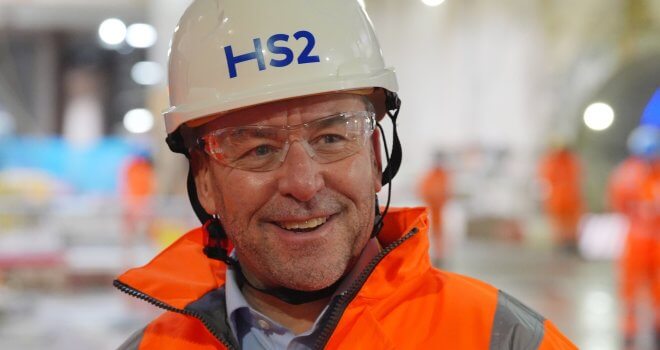GSK Gives Few Clues On Plans To Replenish Medicine Cabinet

GSK chief executive Emma Walmsley on Wednesday made replenishing the drugmaker’s pipeline of vaccines and therapies her number-one priority.
But analysts were disappointed she did not give more details on how she and her management team plan to find the company’s next set of blockbuster drugs.
The current pipeline will sustain growth through the end of this decade and beyond, Walmsley said on a call after the world’s biggest vaccine maker reported stronger than expected fourth-quarter results.
But analysts say there is not enough in the medicine cabinet to keep the momentum going even beyond the next few years.
Investors were particularly keen to hear about the pipeline strategy after GKS spun off Haleon, its consumer health products business, which makes Sensodyne toothpaste and other staples last July, providing cash to supplement its drugs pipeline.
GSK largely missed out on the lucrative market for COVID-19 vaccines, but has had a string of strong quarters after years of underperformance relative to its peers.
Fourth-quarter results were boosted by sales of its HIV drugs and its blockbuster shingles vaccine Shingrix.
But after an early burst higher, GSK’s shares on London’s blue-chip FTSE 100 ended down 0.2%.
“We didn’t really learn a lot new today in terms of their efforts to broaden out the pipeline,” said Barclays analyst Emily Field.
The loss of patent protection by 2027 for dolutegravir, the compound that forms part of four GSK’s HIV treatments, is a particular concern because this puts more than 5 billion pounds ($6.2 billion) of sales at risk, Sebastian Skeet, healthcare analyst at research firm Third Bridge.
Among a handful of prospects, GSK is leaning primarily on its vaccine targeted at the respiratory syncytial virus (RSV), which causes thousands of hospitalisations and deaths each year, to least partially offset that loss.
It has been submitted for regulatory review in the United States, European Union and Japan.
But with rivals Pfizer and Moderna also competing for a slice of the estimated $10 billion market, some analysts expect GSK may end up with only a portion of that, Skeet told Reuters.
“The implication, therefore, is that there is still ground to make up,” he said.
The company has announced some acquisitions, including a deal to buy U.S.-based Sierra Oncology in 2022, but it has culled a handful of programmes from its pipeline, including abandoning a cancer-focused pact and the field of cell and gene therapy altogether.
GSK has also suffered setbacks in its marketed cancer drug portfolio in recent months. Meanwhile, analysts say the market for Shingrix will eventually become saturated, further limiting the company’s growth prospects.
R&D SPEND
GSK’s spending on R&D has long lagged behind its peers, something activist investor Elliott highlighted in a 2021 letter pressuring the company to make sweeping changes.
The company has begun to close the gap somewhat, spending just over 5 billion pounds ($6.2 billion) on R&D in 2022, but is still behind rivals Roche, AstraZeneca and Pfizer, said Andrew McConaghie, senior healthcare analyst at Citeline.
GSK’s top scientists say they are working on doubling its R&D productivity from the industry standard of 10% to 20%, or taking 2 in 10 drugs all the way from early trials to market, with the help of technologies like artificial intelligence.
Some investors and industry experts say there is still time for the company to turn its drug pipeline around.
Lucy Coutts, investment director at wealth management firm JM Finn, which holds GSK shares, there is hope the company will eventually deliver a streamlined and specialist portfolio of blockbuster drugs.
But until that happens, the stock may remain under pressure.
“There is little visibility on that for investors at this stage,” she said.
(Reporting by Natalie Grover and Maggie Fick in London. Editing by Jane Merriman)




